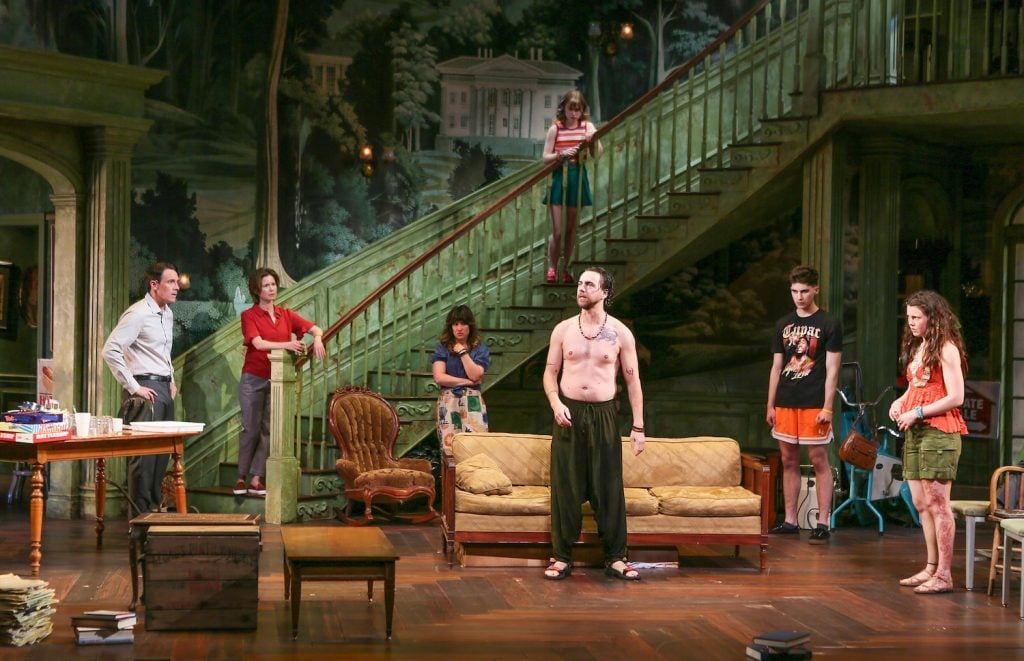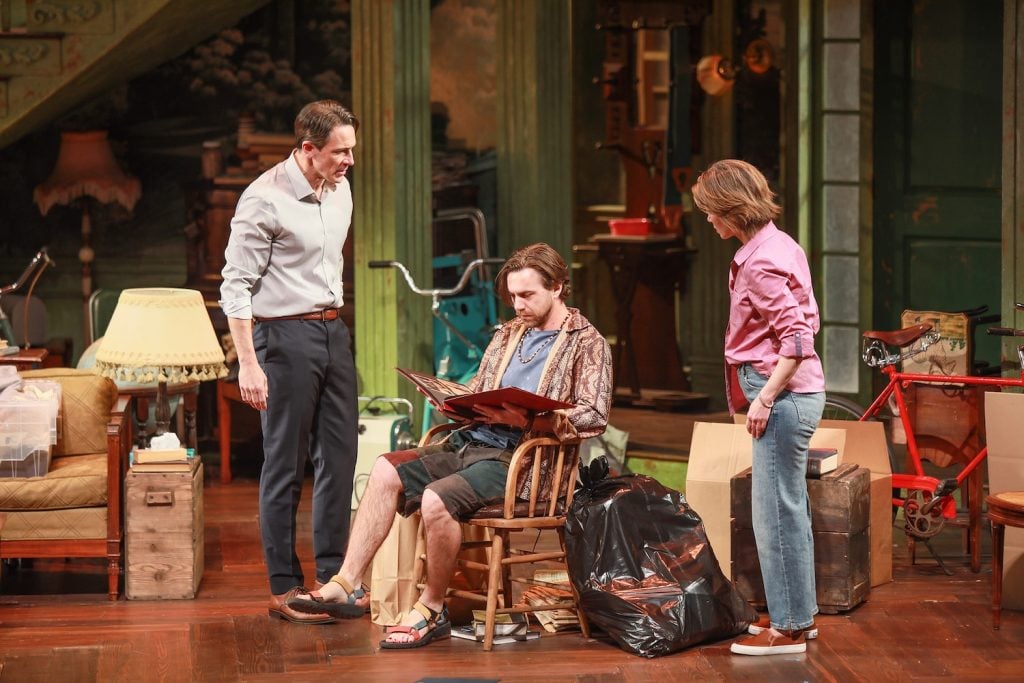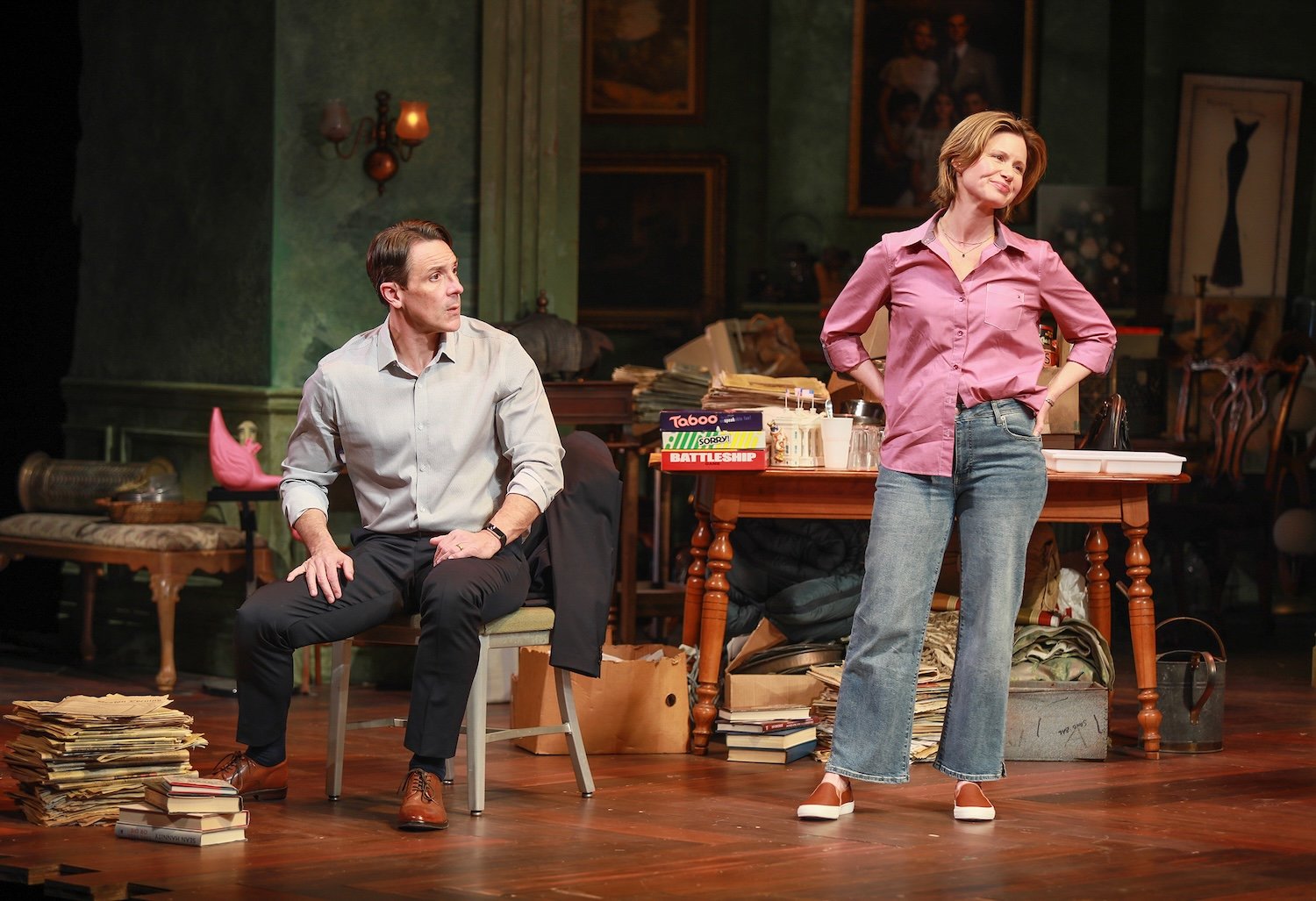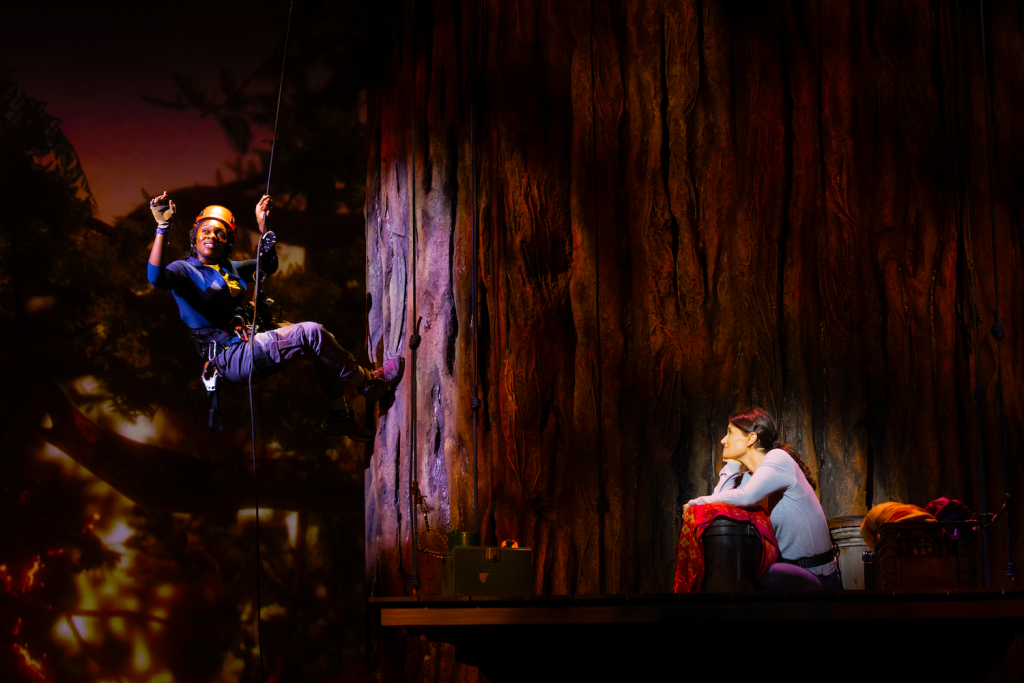This is a comedy. You will laugh. You might not want to, but the Lafayette family’s antics of estrangement will force at least a chuckle and maybe even a face-covering gasp.
Set in 2011, Branden Jacobs-Jenkins’ Tony Award-winning play (Best Revival in 2024), Appropriate, is, at face value, a run-of-the-mill family drama. But this parlor room tête-à-tête takes aim at what people say when others aren’t around and then, when they’re comfortable, what they say to their faces. The Lafayettes, after all, are very comfortable with being uncomfortable around each other.
Meet the three siblings of the Lafayette family: Toni (Maggie Lacey), the defacto matriarch and a control freak who is spiraling out of control in her own life; Bo (Steve Kazee), the capable, C-suite-dwelling big brother; and Franz—birth name Frank—(Daniel Petzold), the baby and epic screw-up who seems to have found redemption in AA-style platitudes and Portland, Oregon’s metaphysical hippie movement.

The siblings and their spouses and children rendezvous at the dilapidated Arkansas plantation that belonged to the trio’s recently deceased father, who had a penchant for hoarding. Their task? Get rid of the clutter and sell the home. Each sibling plans on getting a third of the profits and never looking back. As they unpack the ephemera from generations of Southern living, the family finds a secret cache of rather disturbing photos that call into question their father’s integrity, their memory of him, and each character’s own damning qualities. No one is spared.
With this secret off the shelf and out in the open, it becomes a game of hot potato. Whenever a character holds the photo album, more secrets come to light.
They arrive in the season of the cicadas. As a reminder, a constant, low drone—a clever choice from director Steve H. Broadnax III and sound designer Curtis Craig—plays perpetually in the background, propelling the play’s taut dialogue and reminding us that we’re not in Portland, Atlanta, or NYC anymore.
Though the sonic effect fades into subconscious under the sibling’s bickering (much like the audience’s suspension of disbelief that the Lafayettes are displaying normal behavior), these cicadas personify the family tension. These bugs have spent 13 years waiting to wriggle up to the surface, much like the siblings’ grievances.
This is a cast of big personalities. Each character is distinct, dogged, impossible to ignore, even as the dialogue’s twists make it hard to keep up: the elfin River (Brynn Gauthier), Franz’ fiancée, waxing poetic about life beyond the veil; Bo’s wife, Rachel (Sarah Stiles), erring on shrill; Petzold’s Franz, delivering a devastatingly manic manifesto. The children, too, have bravado. Toni’s troubled teenage son Rhys (Daniel Dale) is the mascot of disaffected, TikTok-soaked youth, while the “almost an adult,” 13-year-old Cassidy (Serena Parish) manifests her way into the grown-up conversation by annoyance and persistence.
Each character is a different stereotype that reflects a little bit of truth. Jacobs-Jenkins’ offers us core family archetypes (Bo as “The High Achiever,” Franz as “Failure to Launch,” and Toni as “The Caretaker”), then deftly shows us how white privilege manifests in each. As every character’s inner monologue is revealed, their foundations slowly crumble to reveal their baser tendencies—which are simultaneously humorous and distasteful.

That creepy photo album is the least of their worries. Though racism is a central theme, family—and what it means to exist for and with others—is the axis on which the play turns. Each character spins their own convenient narrative of themselves and their family to fit their own agenda, even if that story isn’t necessarily grounded in reality. We relate to these characters, but we don’t really like them. They each have a unique brand of narcissism to obscure the mirror when it’s held up to their face.
Though Toni is the long-suffering star of the show, with a magnificently verbose performance from Maggie Lacey (act two is where she shines), Petzold’s fearlessness and vulnerability help him eke out the star performance as Franz. Towing the line between pathetic and prophetic, his sins make him both monstrous and relatable.
PARTNER CONTENT
As a Black playwright, Jacobs-Jenkins took the ingenious route of writing a play about racism without a single Black character, leaving these privileged, white characters to toil and, at times, revel in their own latent bigotry. With splashy language—and one truly memorable scene—Jacobs-Jenkins horrifies the audience into reckoning with their own behaviors and beliefs.
Appropriate runs through February 23.






















